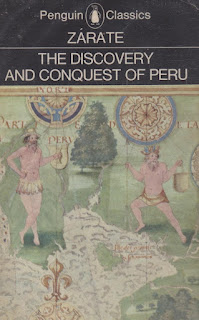It was inevitable that anyone who starts with Jane Austen will have to go through the Bronte sisters. So, when I was done with the 7 novels of Jane Austen, I started with the Bronte sisters about 20 years back. But this is about the one sister, who wrote just one novel and a few poems for the posterity.
“I have not broken your heart - you have broken it; and in breaking it, you have broken mine.”
'Wuthering Heights' is such a strange and distant novel from the world of Jane Austen. In fact, the world of the Bronte sisters itself will feel the same. But Emily Bronte feels stranger. In fact, my introduction to Emily was through her poems - one in particular - 'Remembrance' , about the death of a lover.
"Cold in the earth—and the deep snow piled above thee,
Far, far, removed, cold in the dreary grave!
Have I forgot, my only Love, to love thee,
Severed at last by Time's all-severing wave?"
Far, far, removed, cold in the dreary grave!
Have I forgot, my only Love, to love thee,
Severed at last by Time's all-severing wave?"
That poem - sort of acts as the prelude to Emily Bronte's only novel - 'Wuthering Heights' about the star-crossed love story of Heathcliff and Catherine.
I first read 'Wuthering Heights' in my school days and I read it in an abridged and a very sanitized form as just a plain love story between the lead pair. There was nothing more to it and I thought of it as just another story of star-crossed lovers.
“I have not broken your heart - you have broken it; and in breaking it, you have broken mine.”
So it was a rude shock to the system when I got hold of the unabridged version and read through it later. It was anything but a plain love story. Heathcliff, an orphan raised by the Cranshaw family, falls in love with the daughter of the family, Catherine. Catherine - though in love with Heathcliff - marries Edgar - citing his lack of education and low social status.
Heathcliff leaves and comes back to the moors in a few months - a rich man - and starts taking revenge on everyone around. His madness for revenge is matched in kind by Catherine - who cannot overcome her love for Heathcliff and dies while delivering her daughter - Cathy. The story continues into the second generation with Heathcliff unable to overcome his bitterness and trying to get his revenge on Cathy (Catherine's daughter), finally reconciles with her and dies.
"Be with me always--take any form--drive me mad. Only do not leave me in this abyss, where I cannot find you! Oh, God! It is unutterable!"
"Be with me always--take any form--drive me mad. Only do not leave me in this abyss, where I cannot find you! Oh, God! It is unutterable!"
Like the Moorland itself, the love of Heathcliff and Catherine invokes the violence of nature. How love can at once be tormenting to the soul and provide no solace to it. Catherine married Edgar because he is educated but cannot bear to see Heathcliff getting married to Isabella. When Edgar forbids her not to see Heathcliff again, she wastes away in illness which ends in her death during child birth.
Heathcliff visits her coffin on the night of her death and replaces Edgar's hair in her locket with his. And when eighteen years later, Edgar dies, he again digs up Catherine's grave to look upon her dead body of eighteen years and moves her grave away from Edgar and nearer to him. The macabre nature of this act can only be explained by the love he has for Catherine. And I don't think there is another such act recorded ever since in any literature.
“If all else perished, and he remained, I should still continue to be; and if all else remained, and he were annihilated, the universe would turn to a mighty stranger.”
Throughout the novel, Heathcliff and Catherine calls out each other's names across the moors. The desolate nature of the land itself becomes a symbol of their love. At times the abusive nature of their love is shocking and most of the times, it is actually sadness that crepts over. They accuse each other of betrayal constantly and the bitterness they've for each other is overcome every time by the love they've for each other. The inexplicable nature of this act - when they want to get away from each other, they draw closer further - torments them both culminating in the burial of Heathcliff alongside Catherine.
 "My love for Heathcliff resembles the eternal rocks beneath: a source of little visible delight, but necessary. Nelly, I am Heathcliff - he's always, always in my mind - not as a pleasure, any more than I am always a pleasure to myself - but as my own being; so, don't talk of our separation again - it is impracticable."
"My love for Heathcliff resembles the eternal rocks beneath: a source of little visible delight, but necessary. Nelly, I am Heathcliff - he's always, always in my mind - not as a pleasure, any more than I am always a pleasure to myself - but as my own being; so, don't talk of our separation again - it is impracticable."Emily Bronte's writing itself is tumultuous and the prose sounds violent without the elegance and beauty of the language as expected in a romantic novel. The novel is an emotional mess and it is difficult to get away from that feeling when you are done with it.
This week is the 200th birth anniversary of Emily Bronte..


No comments:
Post a Comment